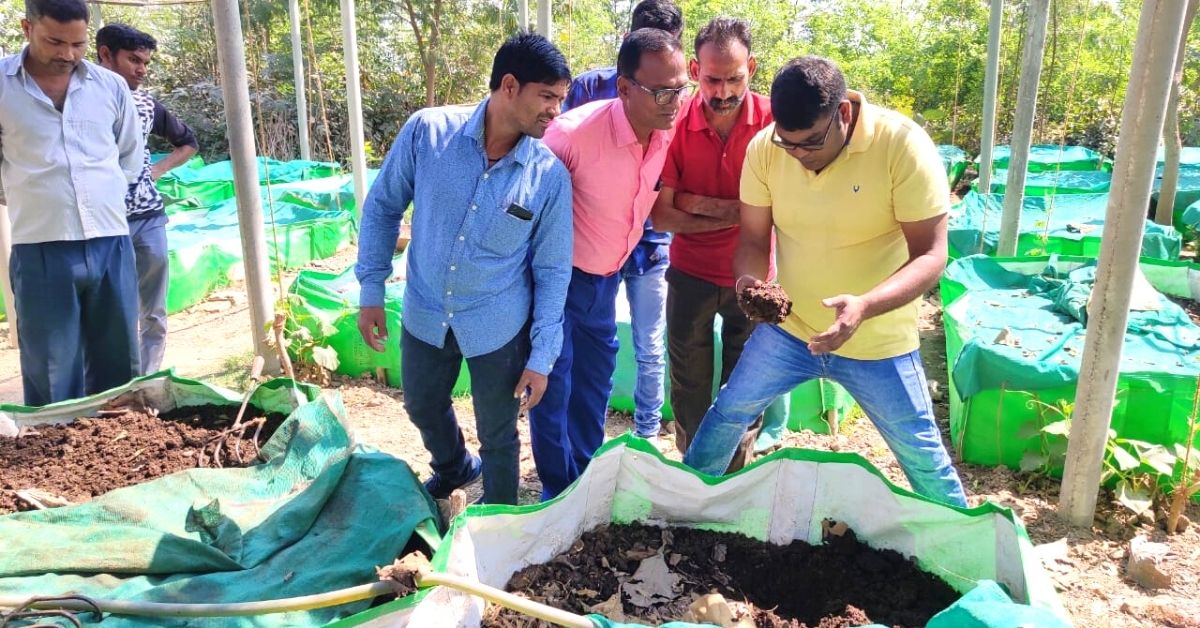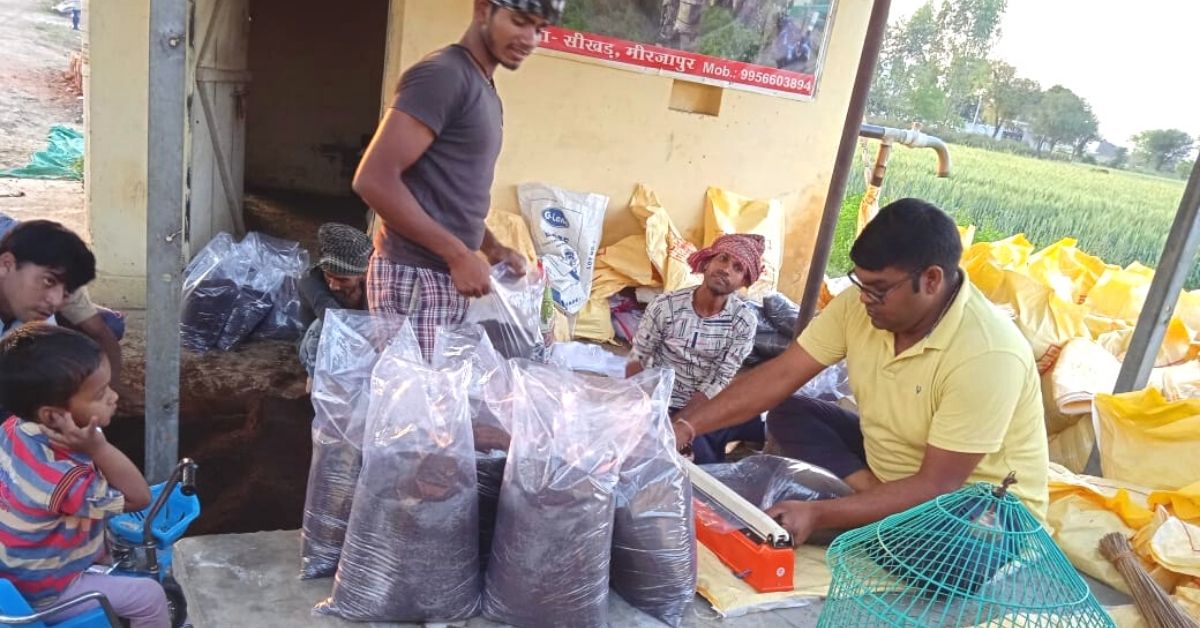UP Brothers Turn 200 Quintals Of Cattle Waste Into Vermicompost, Earn Rs 20 Lakh/Year
Mukesh and Chandramouli Pandey from Uttar Pradesh formed the Navchetna Agro Centre Producer Company Limited to convert cattle waste across 21 villages into vermicompost, which they export to countries including Maldives, Sri Lanka, and Nepal

Traditionally, villagers of Sikhar in Uttar Pradesh had relied on cow dung and other organic material including wood to use as fuel for cooking. However, when the Central government announced the Ujjwala scheme and supplied LPG cylinders of subsidies, the use of cow dung in cooking became redundant.
The immediate effect of this was that villagers stopped sorting cow waste. “It created an issue of unhygienic conditions. The government’s effort to provide clean energy to villagers ended up adversely impacting the Swachh Bharat Abhiyan, which focussed on cleanliness and maintaining hygiene,” says Mukesh Pandey (36), a villager and social entrepreneur in the village.
After 2014, when the scheme was announced, the hygiene conditions of the village started deteriorating. “Cow dung lay on the streets, and water sources became contaminated, giving rise to diseases. The problem would worsen during the rain, as cattle waste would enter the river and streams running along with the village. The school buses refused to ply,” Mukesh adds.
Moreover, visitors and relatives of residents would avoid making trips to the village. “The village stank, and it became difficult to organise social events and functions,” Mukesh says.
Creating wealth from waste

Today, however, the village’s story reads differently. Mukesh and his brother Chandramouli have transformed Sikhar by treating 200 quintals of animal waste generated every year and converting it into vermicompost, earning Rs 20 lakh a year. The move has helped bring hygiene levels in the area back to normal, and farmers are now practicing organic cultivation for a healthier lifestyle.
The brothers’ motivation, other than the poor hygiene of their hometown, was the demise of their father, owing to mouth cancer. “Our father passed away in 2008, and left us indebted with Rs 7 lakh worth of loans. Weak economic conditions forced us to drop out of college,” he tells The Better India.
Mukesh says that for years, he had seen farmers in the village queuing up at the chemical fertiliser shop. “Chemical fertiliser and pesticides also contribute to health ailments such as cancer. My brother Chandramouli was working with a construction company in Lucknow, and I asked him to return to help me with the venture,” he adds.
In 2016, the siblings learned about converting cattle waste into vermicompost. “It seemed like a practical solution, as treating cattle waste in the village would solve the problem of managing it. It could also be used by farmers as vermicompost,” Mukesh says, adding that both brothers undertook training with IIT-Kanpur, Banaras Hindu University (BHU) and National Bank for Agriculture and Rural Development (NABARD), a Central government finance institute.
Mukesh and Chandramouli sought initial funding from the government, and hired two persons to start treating cattle waste in the village by forming the Navchetna Agro Centre Producer Company Limited in 2017. However, they received heavy backlash. “The villagers mocked us, saying that we lost our jobs and despite being educated, were now working in a business with cow dung, which was ‘inferior’ work. No one supported the cause. Our friends and classmates made fun of us,” says Chandramouli.
Promoting sustainable practices

He adds that ignoring their criticism, he and Mukesh worked quietly and convinced farmers to buy their cattle waste to prevent it from reaching the streets. “We also cleaned the streets by collecting the waste. Within a year, the change was visible,” he adds. The brothers also conducted awareness camps among villagers to explain the importance of hygiene.
Eventually, more farmers joined the cause. “They agreed to give their cattle waste and receive 60% of vermicompost in return. We tried multiple ways to help farmers shift to organic farming. Some villagers sought training. Hence, we started workshops for free,” Chandramouli says.
The cattle waste, after being processed into vermicompost, generates a turnover of Rs 78 lakh a year. In the last few years, the siblings have hired 27 employees and now, collect cattle waste from 21 neighbouring villages to convert it into vermicompost. They have also exported organic fertiliser to countries such as Nepal, Maldives, Sri Lanka and others.
“We wish to promote vermicompost and make the business a cattle waste management hub in the district. Farmers should soon move to organic farming practices. Our aim is not to earn money, but develop an ecosystem to encourage sustainable practices,” he adds.
Edited by Divya Sethu
If you found our stories insightful, informative, or even just enjoyable, we invite you to consider making a voluntary payment to support the work we do at The Better India. Your contribution helps us continue producing quality content that educates, inspires, and drives positive change.
Choose one of the payment options below for your contribution-
By paying for the stories you value, you directly contribute to sustaining our efforts focused on making a difference in the world. Together, let’s ensure that impactful stories continue to be told and shared, enriching lives and communities alike.
Thank you for your support. Here are some frequently asked questions you might find helpful to know why you are contributing?


This story made me
-
97
-
121
-
89
-
167













